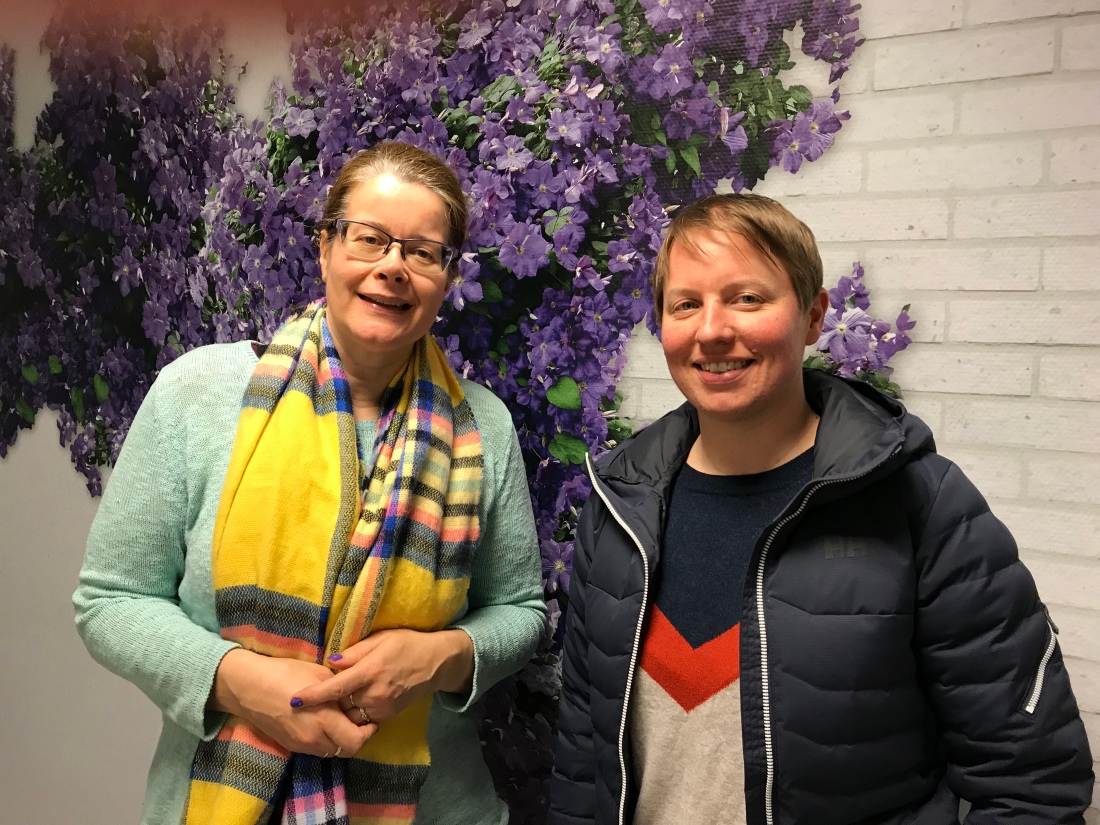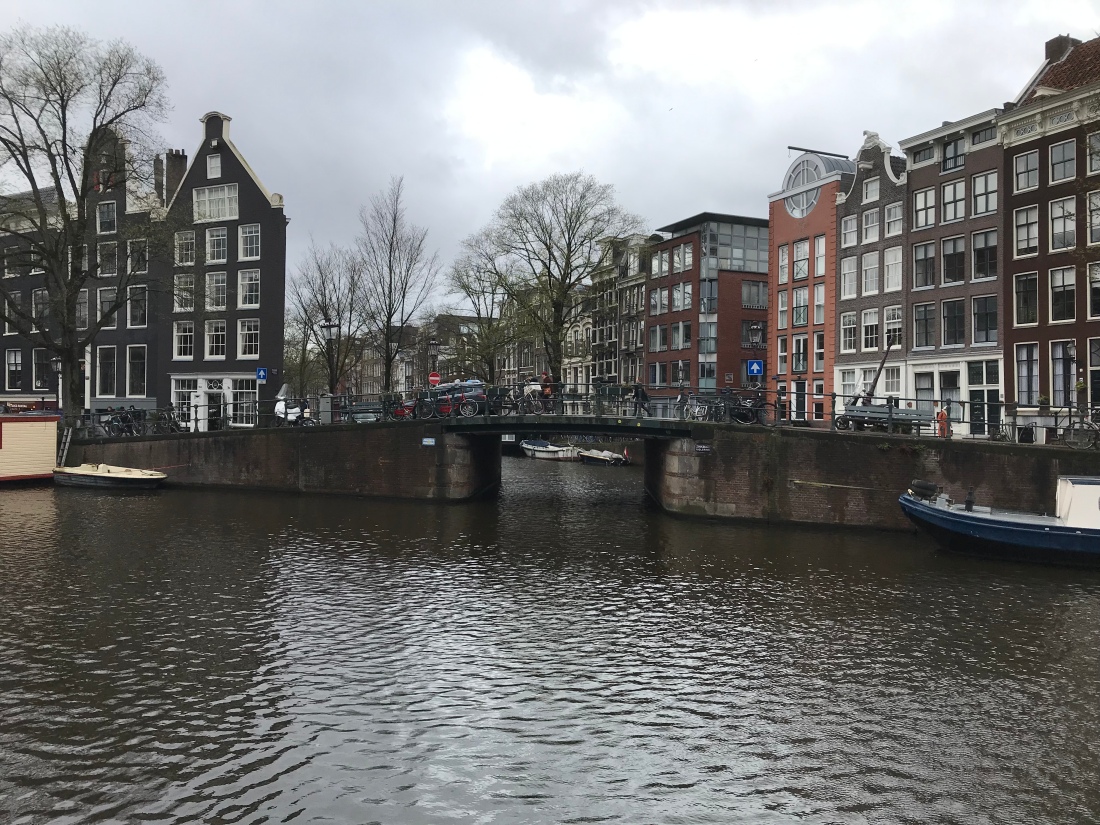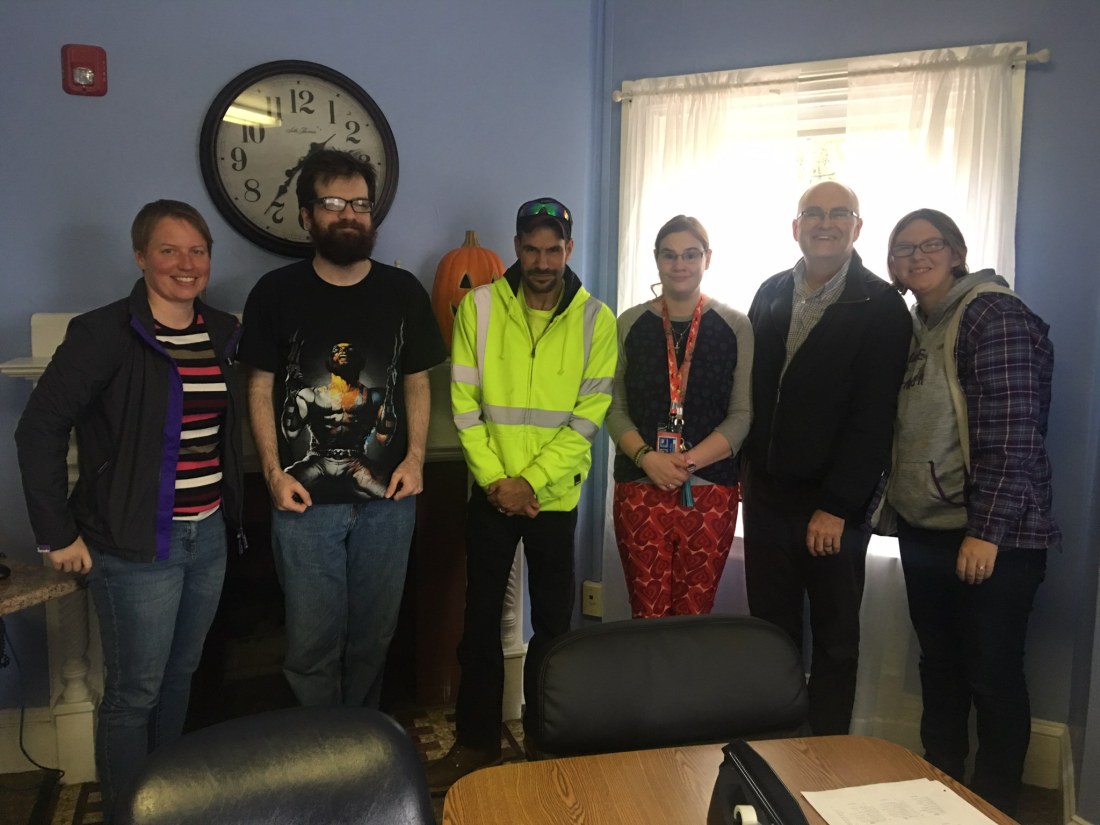
ADAPT is the Dutch Police’s organisation for officers and staff with autism, AD(H)D and Dyslexia. Today I travelled to Huizen to meet Marlies Heida-Bakker, who works in forensics and who is a member of the organisation.
Marlies has worked for the Politie for 10 years, and has been open about her autism since she joined. She was diagnosed when one of her children was undergoing the process, and she recognised all of the signs in herself. She was quite complementary about the organisation’s reaction to her disclosure, saying that they simply asked “what do you need?”. She recalls that her colleagues were initially not quite as accepting, and there were some grumbles about the potential problems she might face, but these were soon put to bed when they realised that her worth outweighed any issues. Marlies proudly told me that whilst working part-time she had more solved cases than her full time colleagues! She was promoted last year to a more challenging role so she must be doing something right.
I was interested to find out about ADAPT as it’s very similar to the National Police Autism Association (NPAA) and is actually the only other body of that type that we know about anywhere in the world! It’s funded by the Police as a staff association, the people who run it do so in addition to their day jobs, although they are given time to devote to it, as most of the forces in the UK will also do for staff associations. Marlies wasn’t 100% sure when it was founded, but she first became aware of it two years ago when they held a “coming-out” day for autistic colleagues, which around 150-200 officers and staff attended from across the Netherlands! This is where Diederik Weve, who I met yesterday, had been involved. All of the attendees were autistic or had autistic spouses, for example. They spent the day discussing their roles, their issues, they support they received or were in need of and generally just meeting each other. Marlies said that the sense of recognition and acknowledgement that this gave her as an autistic person – that she was valued and not alone – was immense.
ADAPT holds regular meetings across the country for people to attend – you can use it just as a get-together, or bring a specific issue that you might have that you need some advice on, for example. Marlies has not had to ask for further assistance in her role, but if she did ADAPT would be able to give advice or advocate on her behalf to her manager, for example.
She also spoke at length about a course she’d been on about mental strength and resilience for officers. It was a course essentially about looking after your own mental health and physical health. There were lessons on nutrition, sleep, reducing stress, recognising what was happening to you in certain situations and controlling it. It reminded me a bit about some of the things Jesper Alvarsson spoke about at Södertörn last week. Marlies had been reluctant to go on the course, which is three days long and compulsory, thinking it would be a waste of time. Instead she found it to be a revelation. There are things that autistic people do not always automatically recognise or know, and she said that the course taught her lots of these things – like recognising her feelings of stress, coping with them, and most of all, choosing not to be stressed. Now stress isn’t a purely autistic thing by any means, don’t get me wrong, but there’s an argument that the baseline is a bit higher because of the intrinsic stress of being autistic and trying to fit into the world. So knowing how to deal with it is very important. And the recognition that other people are also feeling stress and anxiety (or pain, or cold, or whatever other thing I’m feeling) can actually be a bit of a revelation for us, which might sound odd to some of you, but sometimes it takes a bit of remembering, or figuring out.
So maybe that’s something to take away for my NPAA colleagues when we think about reasonable adjustments or supporting our colleagues – training on the neurotypical (non-autistic) brain, how it works, and what it might do in some scenarios!? Even little things like the how/what/when of asking for help. It’s assumed that you’ll just do it, or know how, or when. But that’s the type of small thing that autistic people can struggle with and not even know it. So maybe we should teach that?
Anyhoo, that’s a wee tangent. I thoroughly enjoyed speaking to Marlies and hearing about her work. She gave up her day off to speak to me which I’m extremely grateful for. Once I was back in Amsterdam I took the opportunity to have a wander round the city, including taking the ferry over to North Amsterdam to the A’DAM Lookout, which was great, if a tad windy.






 After the disappointment (in some ways) of Denmark things have returned to a state of normality on my first day in The Netherlands, in that things have been productive and smooth!
After the disappointment (in some ways) of Denmark things have returned to a state of normality on my first day in The Netherlands, in that things have been productive and smooth!




















